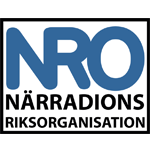
A Milestone Year BeginsCelebrating 20 Years of CMFE and Reflecting on the Power of Community Radio
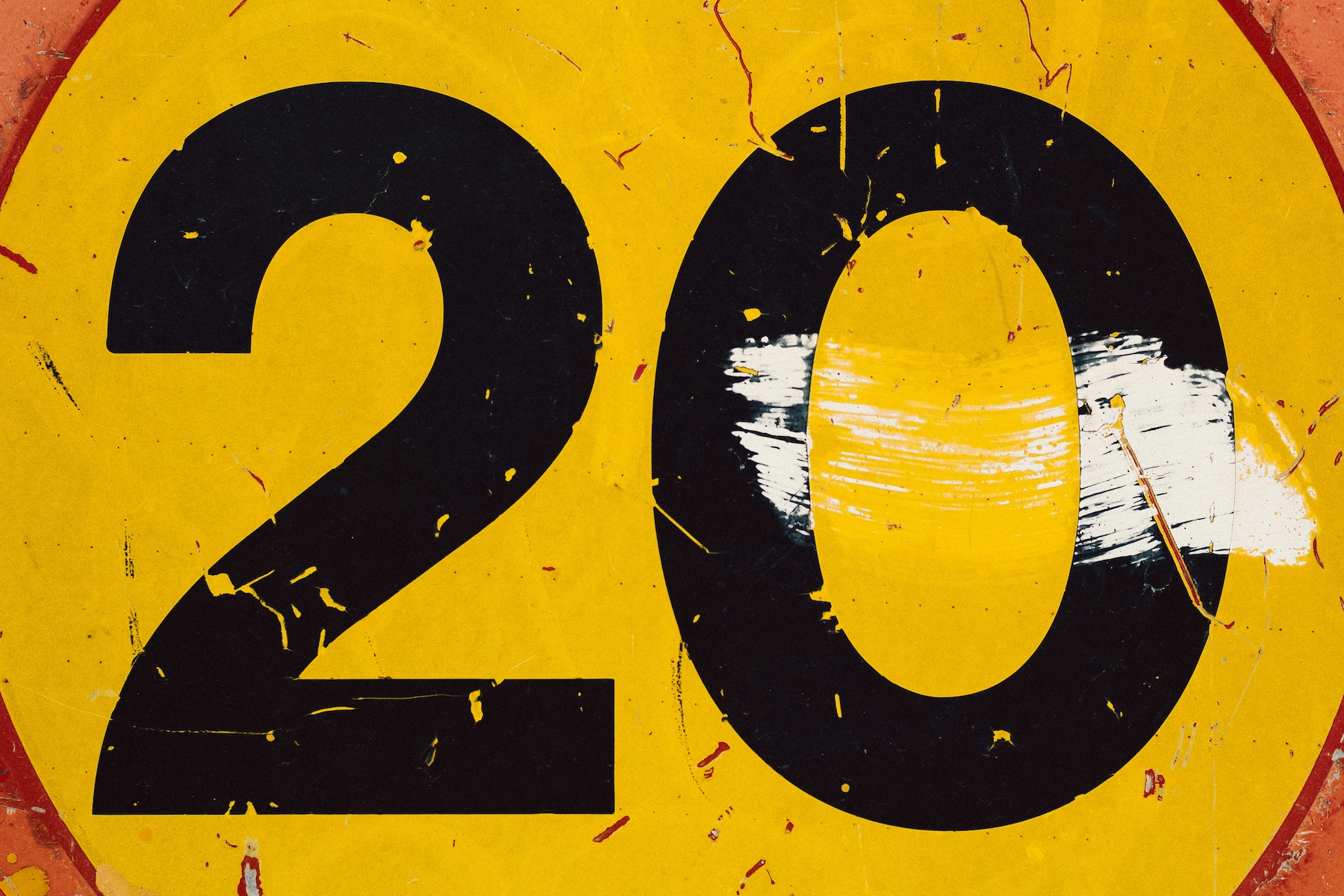
Dear Members, Supporters, and Friends,As we step into the promising dawn of 2024, the Community Media Forum Europe (CMFE) embraces this year with a sense of profound gratitude and anticipation. Not only does this year mark the 20th anniversary of our organization—a journey of advocacy, challenges, and triumphs in amplifying community voices across Europe—but it also allows us to reflect on the broader landscape of community media, especially community radio, in light of recent celebrations of UNESCO’s World Radio Day 2024.This year, World Radio Day commemorated a century of radio under the theme ”A Century of Information, Entertainment, and Education.” As we reflect on this milestone, it’s clear that community radios continue to embody the essence of this year’s theme profoundly. They remain unique in their ability to integrate information, entertainment, and education into their programming, reaching and engaging communities in ways that other media cannot. Community radios are not just broadcasters; they are vibrant, participatory platforms where voices, often marginalized in mainstream media, find expression and resonance. In celebrating World Radio Day, we also celebrate the enduring spirit and invaluable contributions of community radios to societal development and democratic engagement.As our newsletter reaches you following the observance of International Women’s Day on March 8th, we extend our heartfelt salute to women worldwide, with a particular spotlight on the remarkable women in community media. Women in community media play crucial roles—they are innovators, educators, leaders, and storytellers who drive social change and give voice to the voiceless. Their resilience, creativity, and dedication not only enrich the media landscape but also fortify the foundation of our communities. As CMFE, we stand in solidarity with these incredible women, advocating for gender equality within media spaces and celebrating their achievements.The 20th anniversary of CMFE is a testament to the collective effort, passion, and perseverance of all those who have walked with us. From our founding members to the newest volunteers, it’s your belief in the transformative power of community media that has shaped our path. This year, we are committed to reflecting on our achievements, addressing our challenges, and setting ambitious goals for the future. We aim to deepen our impact, extend our reach, and continue our unwavering support for community media across Europe.As we look forward, let’s also embrace the lessons and legacies of the past—drawing inspiration from the century of radio and the pioneering spirit of women and men in community media. Together, we can forge a future where community media is more inclusive, resilient, and influential than ever before.Thank you for being part of this remarkable journey. Here’s to celebrating 20 years of CMFE and to many more years of making a difference through community media.
CMFE Newsletters ArchiveRead previous issues here.////////////////////////////////From our own world////////////////////////////////The fight for the community media legislation in Slovenia continuesCMFE reacts to the proposal of the new Media Act by the Slovenian Ministry of Culture
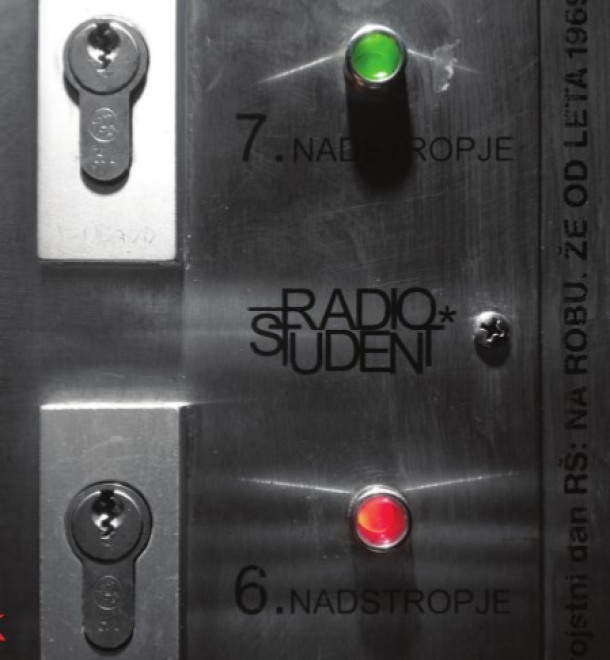 Photo credits: Radio Študent.
Photo credits: Radio Študent.In December 2023, The Slovenian Ministry of Culture published a draft proposal of the new media law which contains no mention or particular regulation of the Third Media Sector. Radio Študent, a member of CMFE, launched a campaign advocating for the needs of the third media sector through various radio broadcasts and public events to inform the professional and general public about its crucial role in the media landscape, and to emphasize the sector’s need for the appropriate regulation of the conditions under which it functions. CMFE fully supports Radio Študent in its advocacy activities and in its efforts to ensure that the legislator recognizes the third media sector as an important pillar of a pluralistic media space and provides it with the basic and necessary conditions for its functioning. Since the adoption of the European Parliament resolution on Community Media in Europe (A6-0263/2008), the Slovenian Government has failed to implement the recommendations of the EP to its Member States to recognize the existence of non-profit community media at the legislative level and to provide them with legal, material and other essential conditions needed for their smooth functioning. Read the full statement here.Our response to EU Delegation to Serbia’s open call for consultation on future media funding in Serbia.CMFE’s Advocacy for Community Media in SerbiaIn response to an open call for consultations by the European Union Delegation to Serbia, CMFE utilized this opportunity to advocate for the advancement and support of community media development systems in Serbia. Our submission emphasized the critical need for refined legislation and robust support mechanisms to nurture the nascent community media sector recognized under new Serbian media laws. This dialogue reflects our commitment to bolstering media pluralism and freedom, highlighting the essential role community media plays in fostering diverse and inclusive public discourse.As part of our broader efforts to strengthen community media across Europe, CMFE’s engagement in Serbia aligns with our strategic objectives to enhance journalistic standards, promote media literacy, and combat disinformation through grassroots approaches. Our involvement underscores the potential of community media to contribute significantly to a more democratic and pluralistic media landscape in Serbia, in line with the European Union’s vision. CMFE remains ready to share our expertise and collaborate with local stakeholders to support the development of a sustainable community media framework in Serbia.Read the full consultation paper here.////////////////////////////////Strengthening an enabling environment////////////////////////////////European Media Freedom Act: Council adopts new rules to protect journalists and media providers
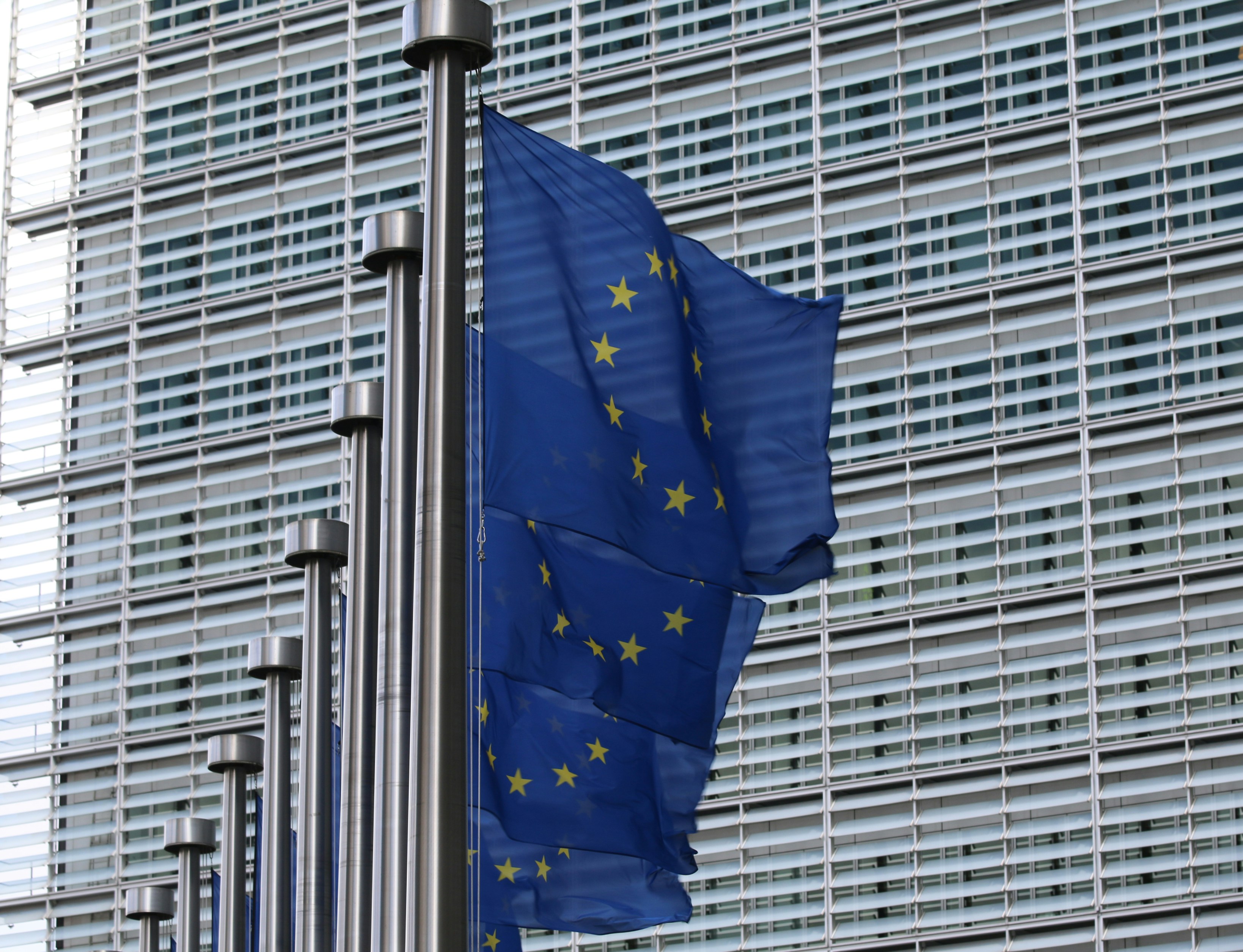 Photo by Guillaume Périgois on Unsplash
Photo by Guillaume Périgois on UnsplashThe Council has adopted a new law that will safeguard media freedom, media pluralism and editorial independence in the EU. The European Media Freedom Act (EMFA) will establish a common framework for media services in the EU’s internal market and introduce measures aimed at protecting journalists and media providers from political interference, while also making it easier for them to operate across the EU’s internal borders.The new rules will guarantee the right of citizens to access free and plural information and define the responsibility of member states to provide the appropriate conditions and framework to protect it.Read moreGenerative AI: UNESCO study reveals alarming evidence of regressive gender stereotypes

Ahead of the International Women’s Day, a UNESCO study revealed worrying tendencies in Large Language models (LLM) to produce gender bias, as well as homophobia and racial stereotyping. Women were described as working in domestic roles far more often than men – four times as often by one model – and were frequently associated with words like “home”, “family” and “children”, while male names were linked to “business”, “executive”, “salary”, and “career”. Download the studyNew Licenses to Swiss Community Media
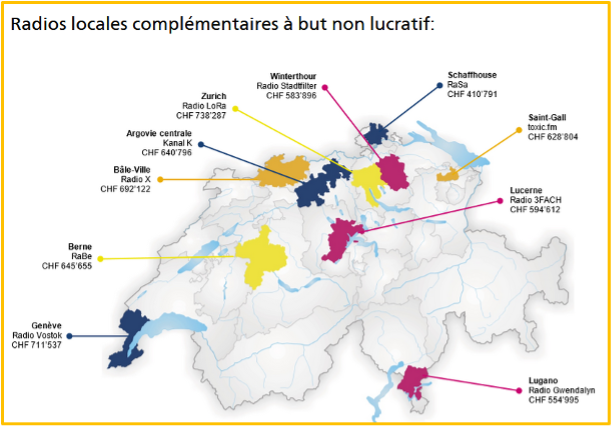
In January (2024) the new Swiss community media (and other) licenses were awarded for the next 10 years. The Swiss community radios are called the ”Radios locales complémentaires à but non lucratif” (in English, ”Local non-profit [complementary] radios”). The stations must fulfill the following mandate: ”provide radio programming that differs thematically, culturally and musically from the programs of other radio broadcasters operating in the coverage area. The programming must be characterized in particular by local, participatory, and integrative program content and contribute to opinion-forming and entertainment.”Two new licenses have been awarded: to Radio Gwen in Tessin and Radio Vostok in Geneva.Besides Public Service Media, some private commercial broadcasters also receive funding to fulfill (minority) language and local information mandates, but they are not community broadcasters.Read moreThe European Federation of Journalists publishes its Manfiesto for the EU Elections 2024Stand Up for Journalism as a public good.

Europe’s information ecosystem is at a cross-road. Mis- and disinformation, click-bait, media capture, news deserts at local level, unprecedented attacks against journalists and precarious working conditions leading to brain drain in the industry have a potentially devastating impact on the quality of journalism and media pluralism. The use of generative artificial intelligence has much potential but also many risks.The 2024 European Parliament elections will set the direction of where the EU goes. We will need a European Parliament and a Commission, which continues to be committed to work for a fair Europe respecting trade union and human rights, the rule of law, media freedom and media pluralism and overseeing the implementation of all crucial regulatory mechanisms accomplished in the last five years: the Copyright directive, the Digital Services Act, the Artificial Intelligence Act,the Anti-SLAPP directive and the European Media Freedom Act.Read the whole Manifesto here.RSF asks for a new deal to right to information.
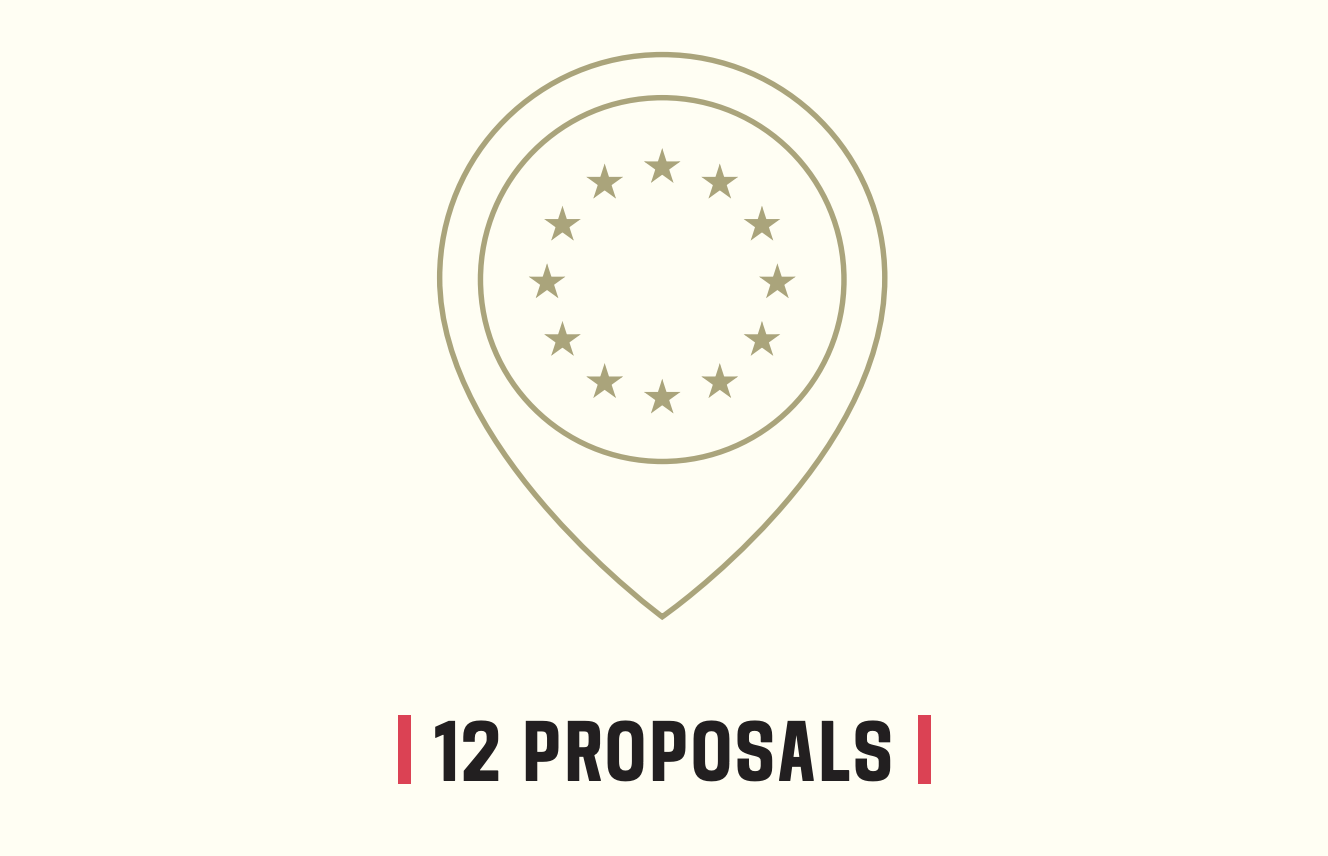
How can the European Union safeguard our right to reliable news and information in the face of growing disinformation, and technology such as generative artificial intelligence with an unprecedented ability to manipulate content? With 100 days to go to the EU elections, Reporters Without Borders (RSF) is proposing a 12-point New Deal for the Right to Information.Read it here.Another great article from Rob Watson over at Decentered MediaValuing Volunteers in Community Media With Asset-Based Community Development
 Photo credits: Decentered Media.
Photo credits: Decentered Media.The value of volunteering in Community Media projects is significant and multifaceted. Volunteering in Community Media projects, when underpinned by Asset-Based Community Development (ABCD) principles, enables individuals and groups to leverage their unique skills, knowledge, and resources for the collective betterment of their community. The ABCD approach seeks to foster a sense of ownership, empowerment, and engagement among community members, encouraging active participation in the development process. This participatory approach helps in building stronger relationships within the community, enhancing social cohesion, and nurturing mutual trust and reciprocity among members. Read more A feminist take on international media development
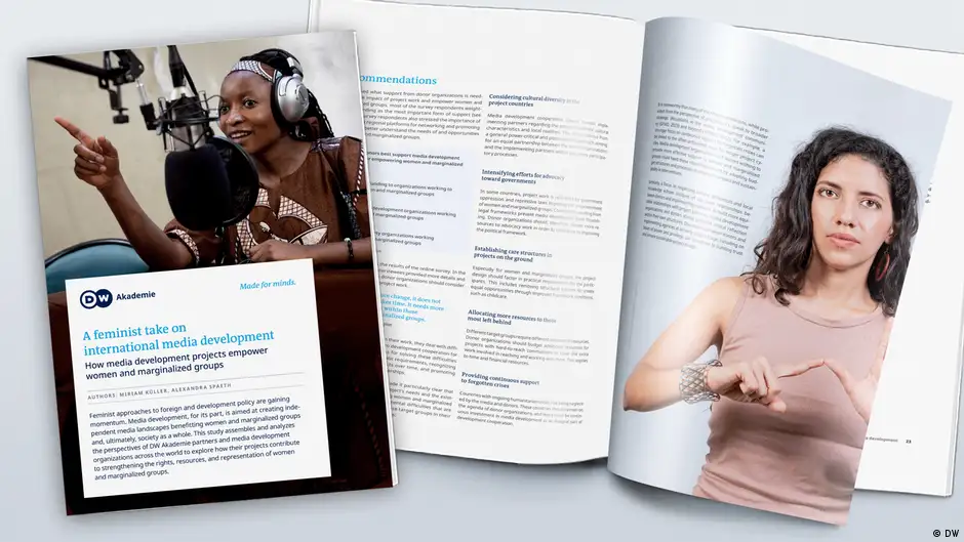
On the occasion of International Women’s Day, DW Akademie (Deutsche Welle) published a new study: ”A feminist take on international media development.” The study captures the thoughts of media development practitioners and experts on how their work contributes to empowering women and marginalized groups all over the world.Feminist approaches to foreign and development policy, which a growing number of countries now subscribe to, are not only about gender equality but equitable participation for everyone. For instance, the German development ministry states in its strategy paper: ”The vision of feminist development policy is equal participation by all people in social, political and economic life — regardless of gender identity, sexual orientation, age, disabilities, migration status, ethnic origin, religion or worldview, or other characteristics.”Currently, little research exists on how media development as a sector can contribute to furthering the goals of feminist policy approaches. DW Akademie’s new study paves the way towards changing that. The findings of the DW study show that media development activities can strengthen women and marginalized groups when it comes to exercising their rights, accessing resources, and increasing their representation. Awareness-raising through media reporting, opportunities for networking and community building, and supporting women and marginalized groups as producers of journalistic content are the most common activities mentioned by interviewees and survey respondents.Interviewees in particular often framed their media development activities in terms of participation and dialogue for everyone, with a diverse media landscape helping all parts of the population to make their voices heard. This is very much in line with feminist policy approaches, such as the strategy of feminist development policy employed by the German Federal Ministry for Economic Cooperation and Development.Read more 8 solutions for mitigating gender bias in GenAI-assisted news

Community media practitioners are generally more Media and Information literate (MIL) than the average citizen, still, there are many pitfalls when using the new, supportive tools in our work. One huge challenge is that when AI-generated text is based on available sources online, they cannot but reproduce the gender bias found in all we read and see.Biases embedded into generative AI (GenAI) quiet, distort, and silence the voices of under-represented groups, especially women and women of color. This is where our community media MIL capacities come in: we have to always scrutinize what we pass on.In a story by Luba Kassova in an Independent Journalism Network newsletter, she proposes 8 steps to consider to tackle gender and racial biases in GenAI based on research carried out. They are:Ensure interdisciplinary and diverse teams and workflows around GenAI, asking: Is this diverse enough? Have we got a wide enough range of voices?”Increase the representation of women, including women of color, among tech editors and reporters. This, as editors’ lived experience, impacts what they define as a story-Increase women AI experts’ share of voice in the news: there is a too-narrow pool of the same AI experts in the news. BBC’s 50:50 project has shifted representationCreate databases of female AI industry experts, like many media women’s organizations have developed databases of women experts in general. Important.Highlight the need to mitigate gender and racial biases in editorial standards and guidelines around the use of GenAI.Facilitate industry-wide collaboration to understand and offset biases. It is important to be open about bias challenges: discuss with colleagues how to tackle and avoid them!Use AI to measure women’s share of voice in news, preferably intersectionally. Simon Fraser University’s Gender Gap Tracker could help create pressure on us all.Use AI to combat online abuse, which represents a significant barrier to gender balance in news reporting and online coverage. If we could have a tool that could filter/remove misogynistic content, that would make our work so much easier!!!Read more CMFE joins a coalition to call for effective implementation as the Parliament adopts the European Media Freedom Act
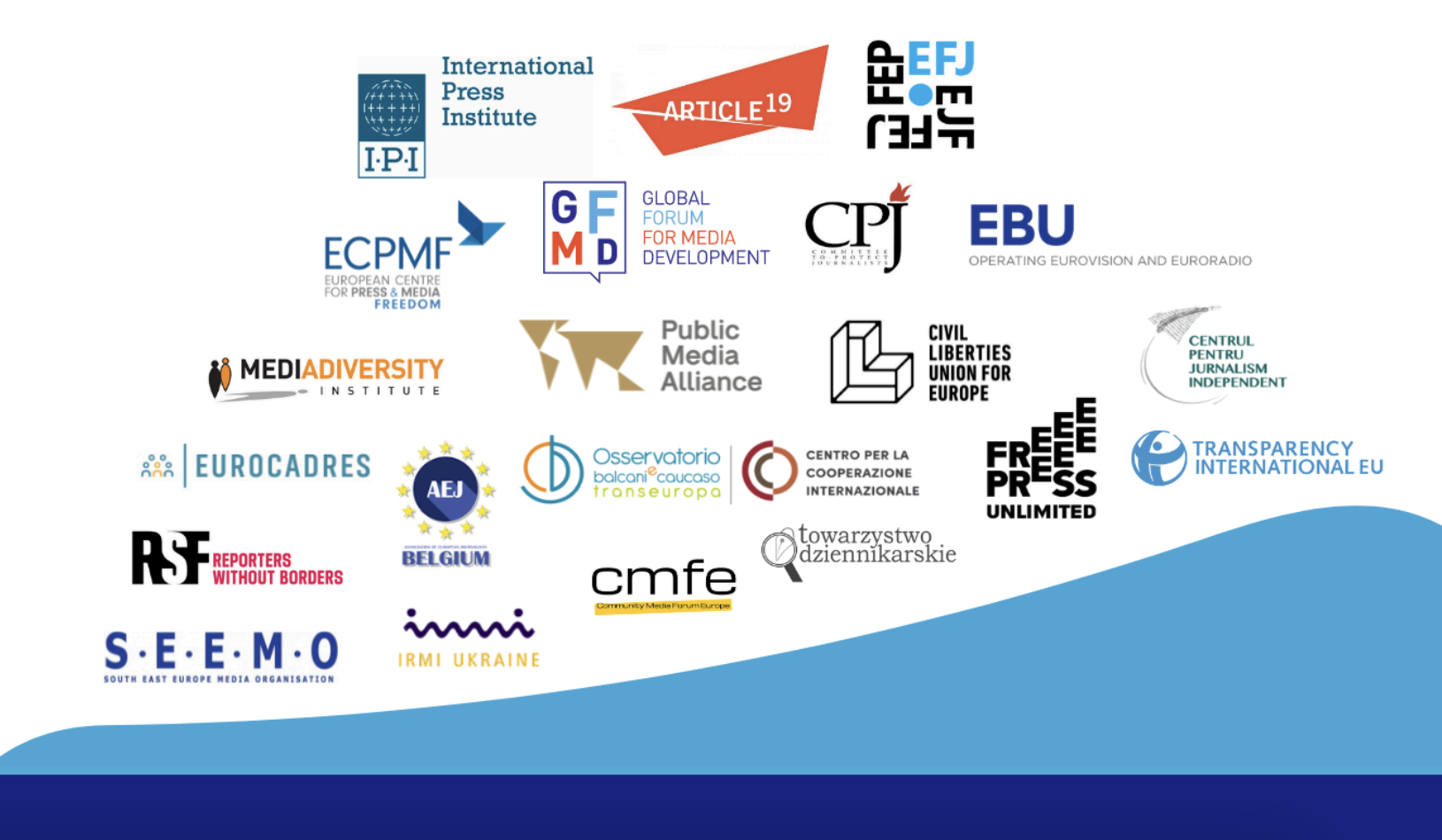
The European Parliament has adopted the European Media Freedom Act (EMFA) this month. The working group on EMFA (part of the wider EU Media Advocacy Working Group) has launched a joint letter calling for the effective implementation of the European Media Freedom Act. While the EMFA is setting a crucial baseline, the 21 organizations signing the letter call for further action from Member States, regulatory bodies, and the Commission, urging them to strengthen safeguards for journalists’ rights and media pluralism beyond minimum standards and to collaborate closely with media and civil society stakeholders for the EMFA’s effective implementation. Undersigned organizations stand ready to support this effort to ensure a resilient press landscape across the EU. For more information or to join the EMFA working group please contact advocacy@gfmd.infoRead the letter////////////////////////////////Improving the Visibility of CM////////////////////////////////Did you always dream about having a public health programme on your community station, but just never found the way in?A ’how to’ CMFE online learning resource takes you by the hand
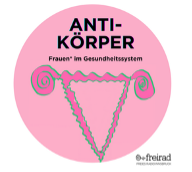

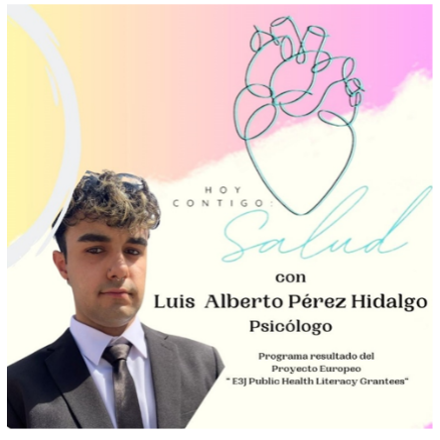
CMFE is pleased to invite you to an online learning resource we have developed on how to build effective public health programs in community media. It is one of the outcomes of our participation in the RSF-led and EU-funded E3J project, which has run from 2022 and ends this spring. CMFE has worked hand-in-hand with the Austrian COMMIT, to strengthen Public Health programming and Media and Information Literacy in community media.
This e-learning package takes you, in five modules, through the steps to systematically prepare a public health program series, strengthen an editorial group’s work with it, and by the end of the five guided group sessions, have a clear, detailed, and well-crafted framework for YOUR program series.The e-learning package builds on the CMFE work with COMMIT in E3J with eight grantee partner community radio stations from four European countries: Austria, Denmark, Ireland, and Spain. Links to programs produced by those stations are included in the package.LinkMedia and Information Literacy Action Research by Radio Campus, France
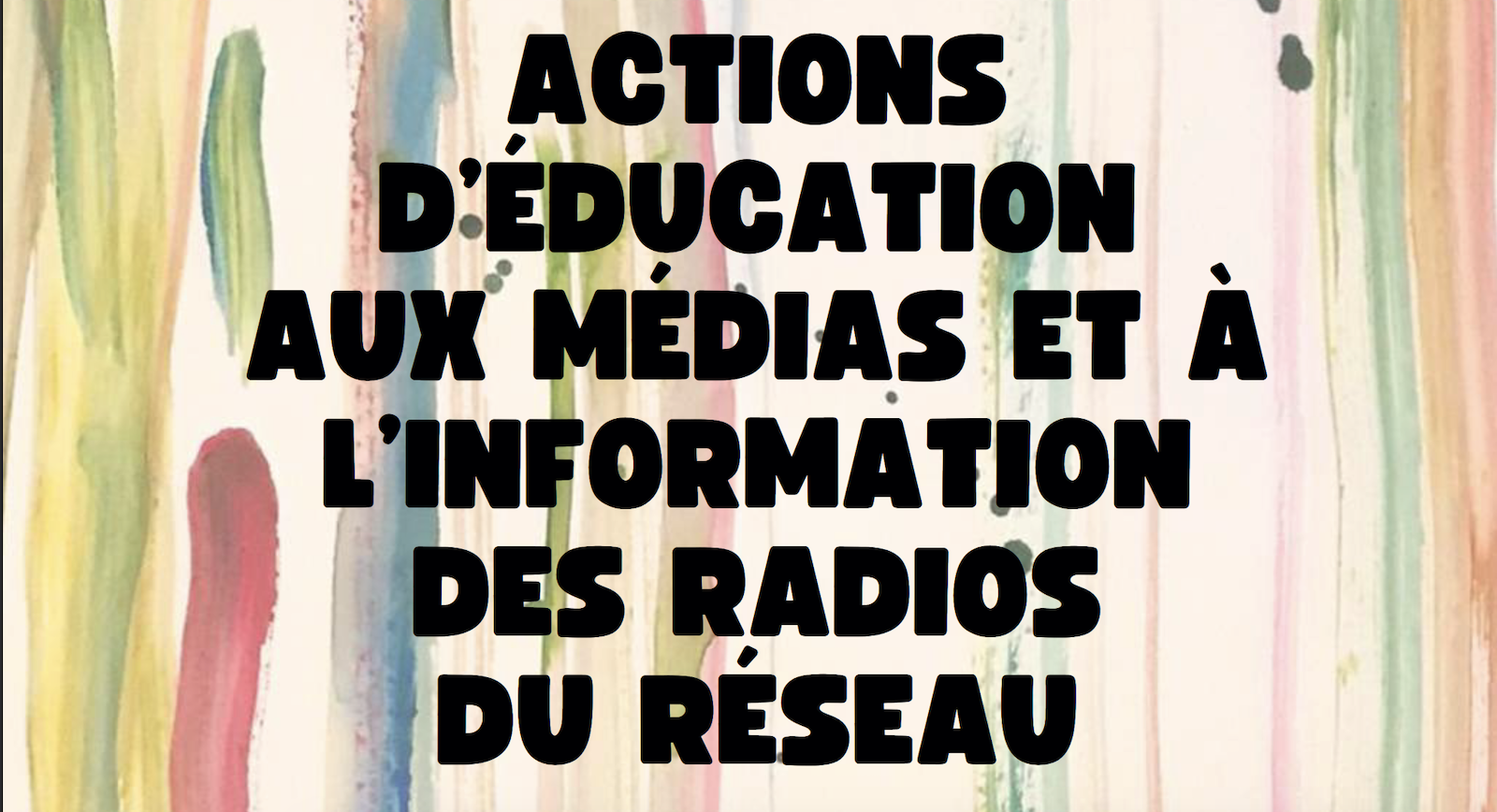
Community Media are in Europe recognized to be one of the prime disseminators and public educators in the area of Media and Information Literacy – recognized as SO important in this epoch of mis and disinformation – and the urgent need for trusted information.To understand exactly how this takes place, the network of the French Campus Radio Association in 2022-2023 carried out a study.The study on MIL actions was conducted with 27 of the 29 radios of the national network, carried out between November 2023 and January 2024, and aims to facilitate the sharing of approaches and the pooling of ideas to strengthen and diversify various MIL practices in the long run.The study found that while not all Campus Radios implemented radio workshops for external audiences, they all engage in a popular education approach that is central to their daily practices, and all volunteers, civil service participants, and radio employees undergo training in radio tools through practical experience and the transmission of skills peer-to-peer. Still, many do carry out workshops for other networks of professionals.At the core of MIL activities, an important inclusive approach was found among all, integrating educational practices in local and regional environments, enabling representation, knowledge exchange, and collaboration at the national and European levels. Situated at the intersection of MIL, popular education, and artistic and cultural education, the educational activities of the radios were found to contribute to the development of inspiring projects, the creation of professional vocations, and the empowerment of individuals.Link to study (in French)Working to aleviate and transform the evil of the pastTroll of the Year 2023: Glorification of War CriminalsMedia, the carriers of good news – and less good news – need to be very cautious with what we advance. In the Western Balkans, the Balkan Troll of the Month is selected to help us all distinguish good from evil. The Balkan Troll of the Month is an individual, a group of individuals, or a media outlet that spreads hate based on gender, ethnicity, religion, or other diversity categories. The Balkan Troll is selected based on hate speech incidents identified across the Western Balkans region.The Balkan Troll of the Month is selected on a monthly basis from incidents monitored and gathered across the Western Balkan region by the Reporting Diversity Network 2.0 (RDN 2.0). Following a preliminary selection by the media monitors in each of the six Western Balkan countries and a subsequent intense round of voting on our Instagram platform, the Troll of the Year was selected. Read more////////////////////////////////Action for Coop. and Change////////////////////////////////International Women’s Day – an annual reminderEvery day we are reminded that all over our world, all over Europe, even the most egalitarian societies are still trailing far behind in sometimes well-articulated desires to provide equal opportunities to all genders. On International Women’s Day, a lot of this is brought out, and we share some of this in this March newsletter of CMFE:
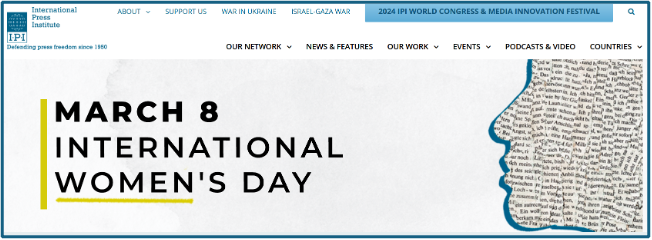
International Press InstituteTo mark International Women’s Day on March 8, IPI is proud to celebrate some of the remarkable women media leaders and women-led newsrooms within our global network. Throughout the month of March, we will spotlight the inspiring and groundbreaking work of 20 individuals and organizations whose stories underscore the diverse and meaningful contributions made by women in the media around the world.Read more hereUNESCO took the International women’s day to highlight their ongoing efforts:UNESCO’s work to support women journalists
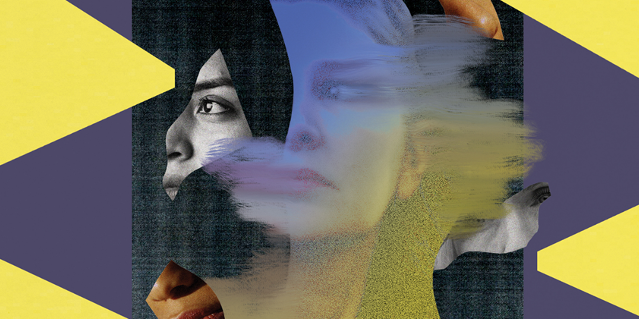
UNESCO chose to hightlight many of its programs dealing with women in the media including the chilling gender-based online violence; their support to women journalists impacted by the conflict in Gaza through UNESCO’s local partner Filastiniyat where humanitarian assistance and emergency supplies have been provided to 170 freelancers, with a significant focus on women journalists. Also, Sudanese women journalists in exile receive support to enhance the safety of journalists by providing financial, psychological, legal, and professional assistance to those most at risk – to just mention a few. From our own community media world, UNESCO profiles a women’s radio station, which has been on air – with a few interruptions – since 2008. Muska Women’s Radio Station, Helmand, Afghanistan
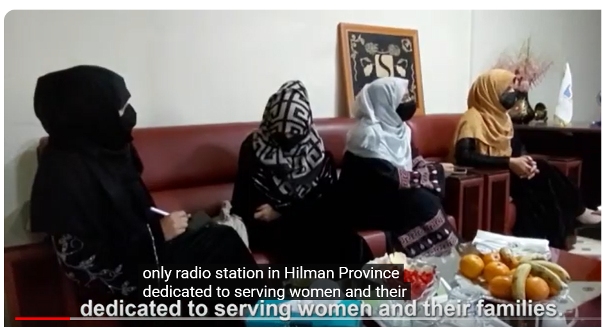
Muska Women’s Radio Station, located in Lashkar Gah, Helmand, is an independent radio station that commenced its broadcast in December 2008. All aspects of the station’s operations are managed by its dedicated team of female journalists. The Radio had to cease its operations in August 2021, following the takeover by the de facto authorities and due to financial challenges. With the support of the EU-funded project “Support to Afghan Media Resilience to Foster Peace and Security”, Radio Muska was able to resume its broadcasting, and now offers job opportunities to 10 women journalists.Celebrating Public Health Programming with Community Engagement in 8 European Stations:CMFE concluding the E3J project with COMMIT and colleagues in Vienna
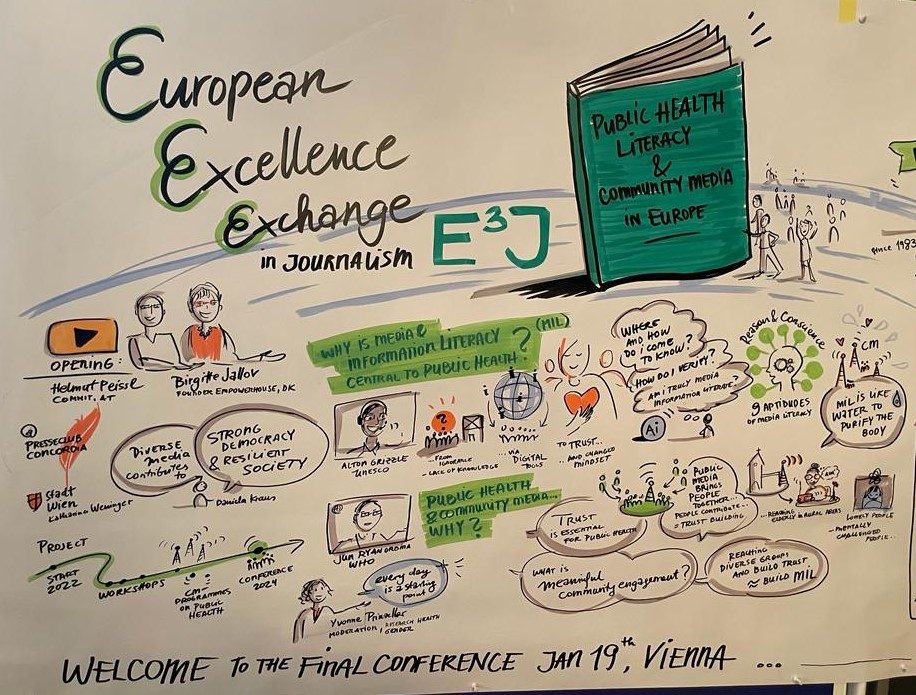
In the spirit of the very full and intense day, into which every participant had put a lot of planning, expectation, travel time, and anxiousness, let this be the summary of the powerful 1-day event:Together we, 40 people from 10 European countries, celebrated a wonderful, fantastic, and fun conference day, full of sharing and learning, thinking and testing ideas, of laughing and hugging and making new friends – while meeting old ones. It could not have been better! After 1½ years of intense work to implement the E3J public health literacy for community empowerment in community media: this day marked the conclusion of our many activities. (Full report)All the eight community radio stations forming the core of the project were with us from Spain, Austria, Ireland, and Denmark, along with the national researchers, the workshop facilitators, the project managers, and the EU Creative Europe Coordinator of our work, Guido di Fiore flying in from Bruxelles – along with the E3J consortium partners from FPU, COPEAM and RSF. What a wonderful event!Keynoted by the World Health Organization (WHO) and UNESCO’s MIL Coordinator and with Yvonne Prinzellner as a powerful, enthusiastic, and insightful moderator of the event and Daniela Waser’s fantastic visual report of the day’s three distinct components, the day was complete. As organizers, we are happy and grateful and share our warmest recognition of everyone contributing. Thank you to all.All that you did not know you might be missing…C L A S S I F I E D S////////////////////////////////Events////////////////////////////////Meet CMFE at the International Journalism Festival Perugia 2024
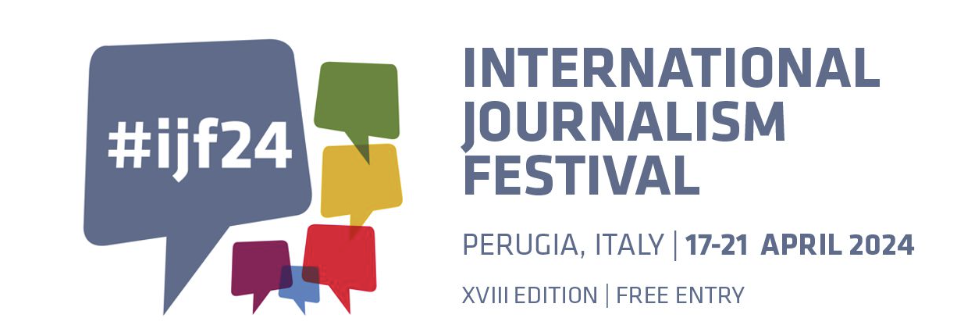
Are you coming to this year’s edition of the International Journalism Festival In Perugia? Then you could meet us there! Feel free to write us at info@cmfe.eu and we can schedule a meeting during the festival! We are organizing a side event with the members of the Display Europe consortium. Join us! Read more////////////////////////////////Funding////////////////////////////////Journalismfund Europe – Fossil Fuel Grants Programme
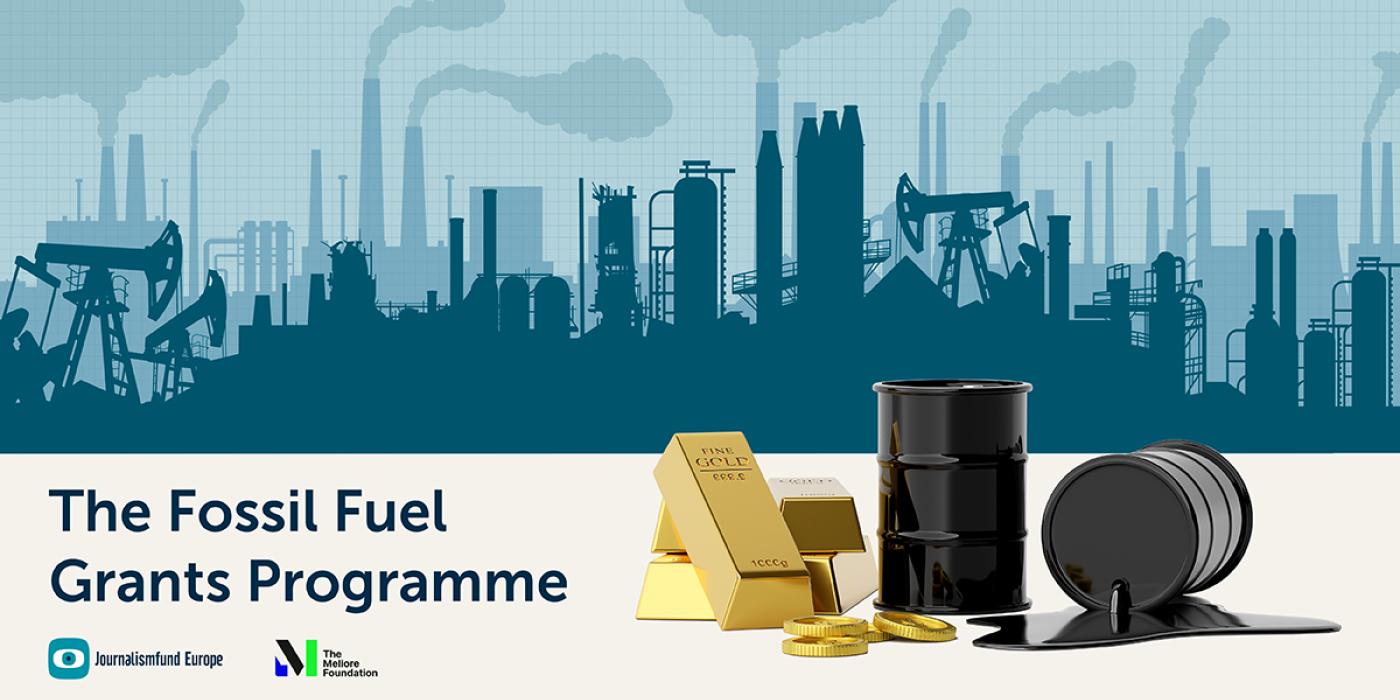
News media and newsrooms still predominantly operate nationally. However, the climate crisis and power structures that hinder the transition away from fossil fuels markedly transcend national boundaries.The Fossil Fuel Grant Programme is therefore aimed at cross-border teams of professional journalists and/or newsrooms to investigate and document unreported activities by European fossil fuel companies and their proxies within and beyond the continent.Next to investigations of fossil fuel industry activities that transcend borders, this programme can also support investigations that compare local industry activities or policies between two or more regions. The resulting stories must be published in at least two outlets in two different countries, at least one must be a European media. The grants can also offer support to preliminary work in the development of new investigative projects. It can cover working time and expenses such as logistics, travel, insurance, access to legal support, translations, access to technology and data sets, etc. Next to financial support, teams can also apply for an experienced mentor to provide assistance with the focus of the investigation or a specific skill or competency. This grant is supported by the Meliore Foundation and housed under a larger programme: The Earth Investigations Programme supported by Arcadia.More infoEASTERN EUROPE / GERMANY Marion Gräfin Dönhoff Fellowship
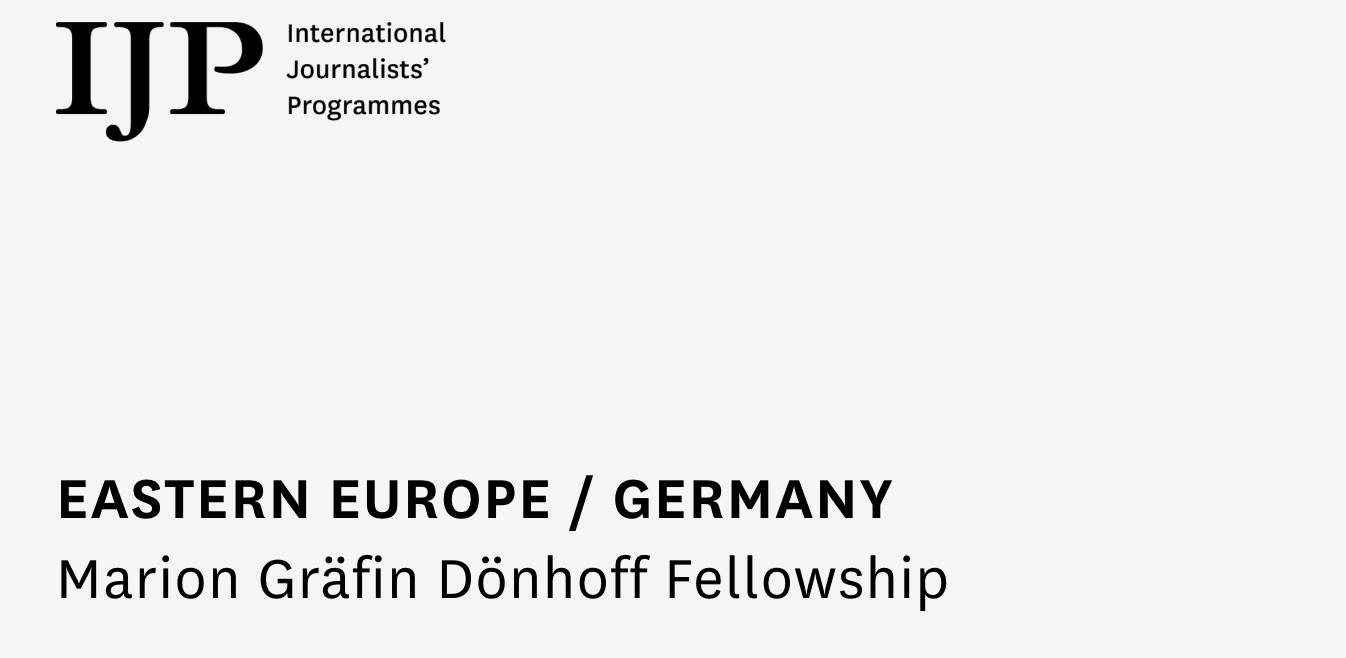
The Marion Gräfin Dönhoff Journalism Fellowship was founded in 2001. Back then, Russia was a reasonably free country, seeking a modernization partnership with the West. IJP promoted the exchange of journalists between Germany and the former Soviet states. Young German journalists spent a two-month fellowship at “Novaya Gazeta” or “Echo Moskvy” in Moscow or “Ukrainskaya Pravda” in Ukraine, while journalists from Russia and other Eastern European countries worked in German media organizations in Berlin, Bonn, Hamburg or Munich.This changed, following Russia’s invasion of Ukraine in February 2022. For security reasons, IJP does not currently send German journalists to Russia, Ukraine, or Belarus. IJP has shifted its cooperation with Eastern European editorial offices to countries where peace prevails and German journalists can move freely and are accredited, including Georgia, Armenia, and Moldova. Journalists from Russia, Ukraine, and Belarus (as well as Georgia, Armenia, Moldova, Uzbekistan, and Kazakhstan) are still eligible to apply to the program.The scholarship is intended to give 10 – 12 young journalists from Germany and Eastern Europe annually the opportunity to gain a personal impression of current political, economic, and cultural developments and backgrounds. Participants work in a foreign journalistic environment and thereby gain insights into the media landscape of their host country.The IJP program for Eastern Europe is named after Marion Gräfin Dönhoff (02.12.1909 – 11.03.2002), long-time editor of the weekly newspaper DIE ZEIT. She did not miss the opportunity to meet the first fellows in Hamburg in 2001, despite her illness, and emphasized the importance of fostering an understanding between East and West.More info
IJ4EU Freelancer Support Scheme
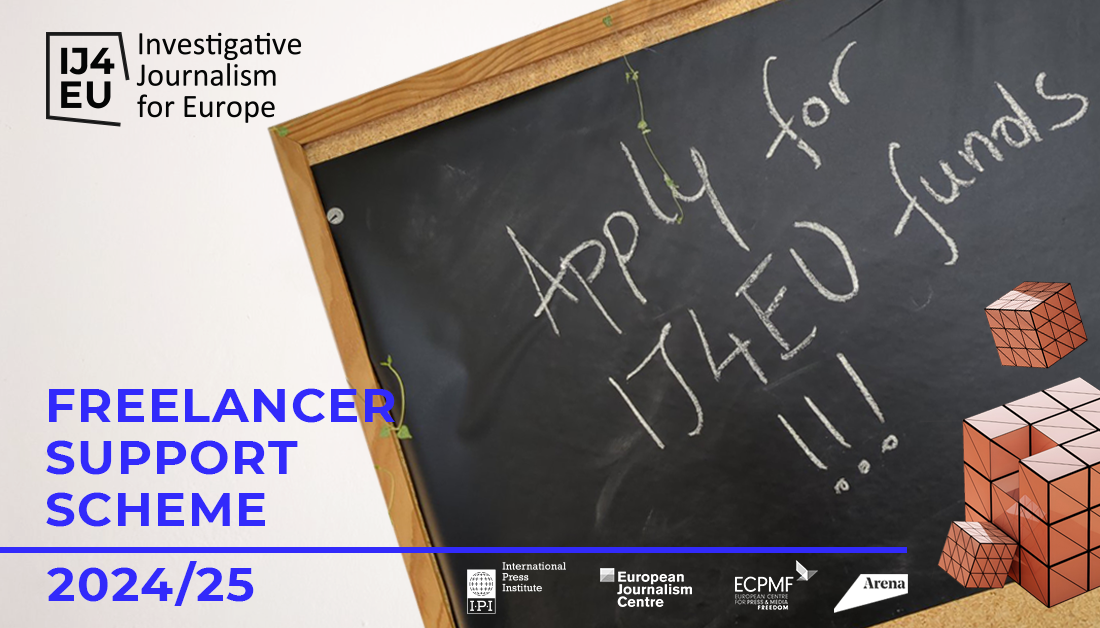 IJ4EU’s Freelancer Support Scheme provides grants to cross-border teams of journalists made up predominantly of freelancers who can benefit from an extra layer of tailored support.The Freelancer Support Scheme is designed to support journalists operating outside of newsroom structures who may be underserved by other journalism support schemes and who are willing and able to collaborate with others to launch investigations of importance to audiences at a local, national, regional, or European level.Investigations developed for all formats — including print, broadcast, online media, documentary filmmaking, and multi-platform storytelling — are eligible to receive support.Grantees have six months to complete their projects. During these six months, in addition to grant funding, they also benefit from non-financial support.More infoEuropean Media and Information Fund grants
IJ4EU’s Freelancer Support Scheme provides grants to cross-border teams of journalists made up predominantly of freelancers who can benefit from an extra layer of tailored support.The Freelancer Support Scheme is designed to support journalists operating outside of newsroom structures who may be underserved by other journalism support schemes and who are willing and able to collaborate with others to launch investigations of importance to audiences at a local, national, regional, or European level.Investigations developed for all formats — including print, broadcast, online media, documentary filmmaking, and multi-platform storytelling — are eligible to receive support.Grantees have six months to complete their projects. During these six months, in addition to grant funding, they also benefit from non-financial support.More infoEuropean Media and Information Fund grants
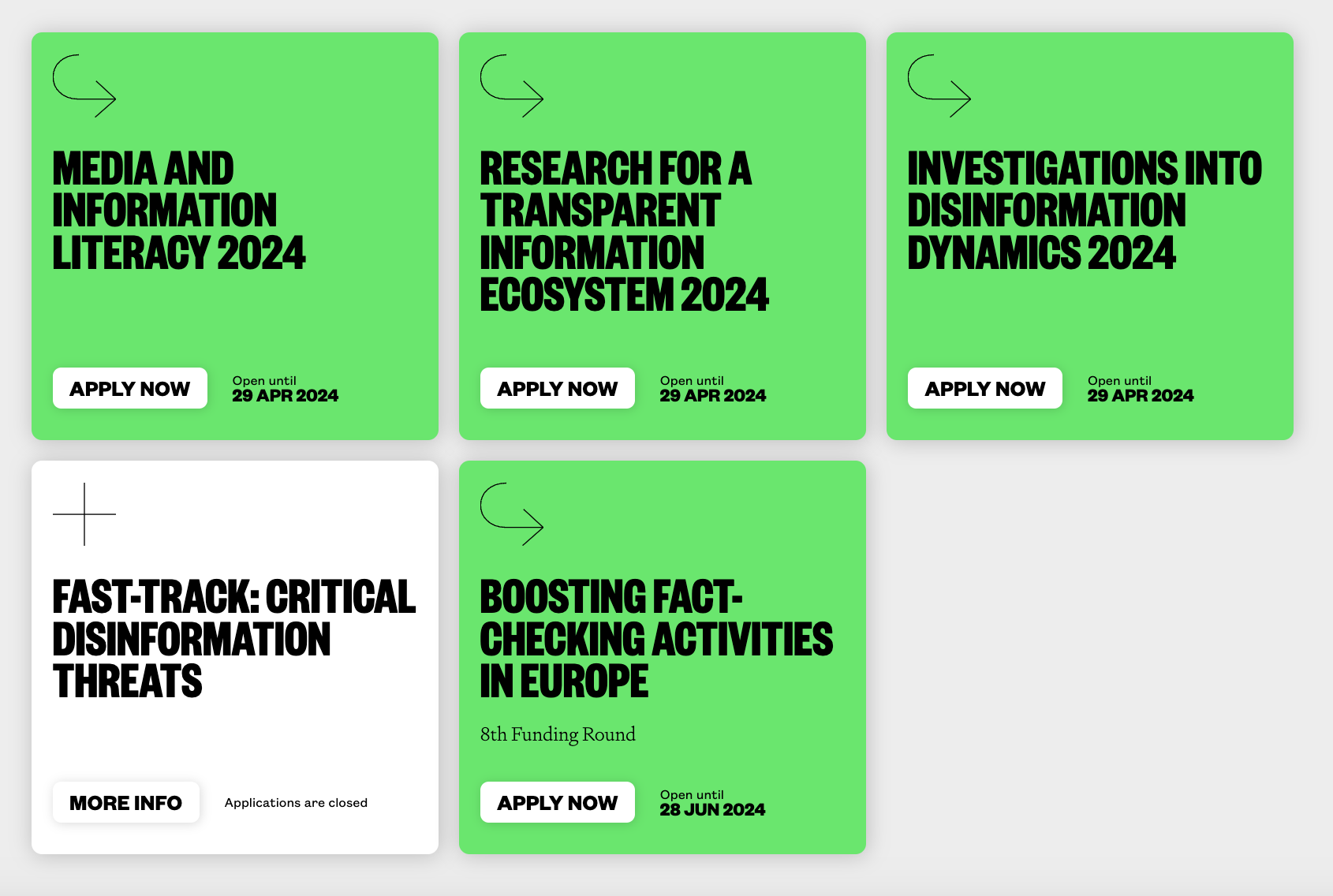
More infoSOJO EUROPE – IN SEARCH OF 18 EUROPEAN NEWSROOMS
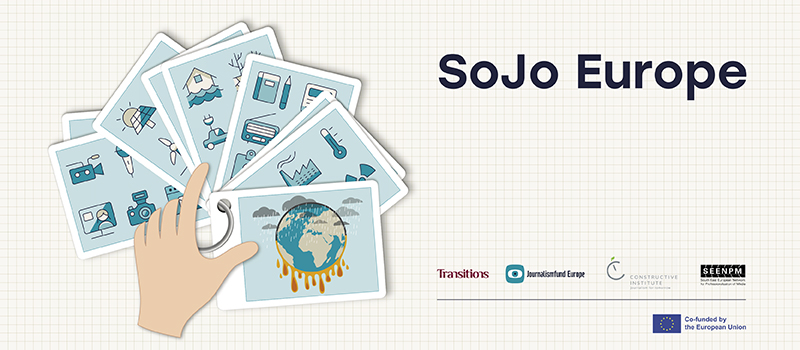
This program aims to respond to the need for media organizations across Europe to pursue different approaches to increase reader trust, audience share, and revenue by creating a cross-European solutions journalism and journalism knowledge hub and encouraging systemic cooperation between professional news media organizations.More info////////////////////////////////Calls////////////////////////////////MDI Call for writers
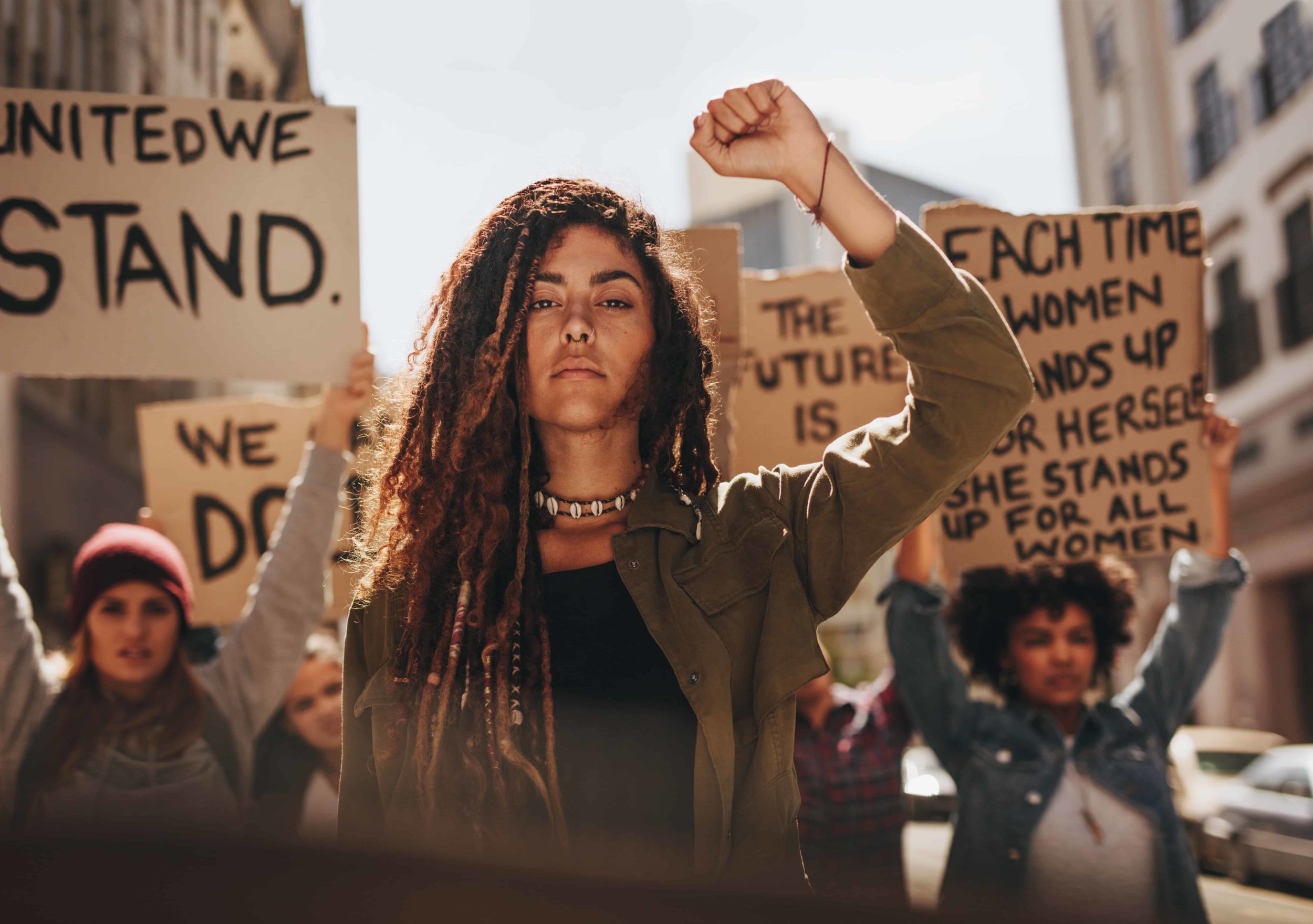
MDI’s stories examine the ways that race, religion, class, dis/ability, age, gender and sexual identity issues intersect with major topics in the media, and aim to bring new perspectives to light.To pitch a story to MDI, please read the editorial guidelines here.More info////////////////////////////////Publications////////////////////////////////How-To: Bring more women online
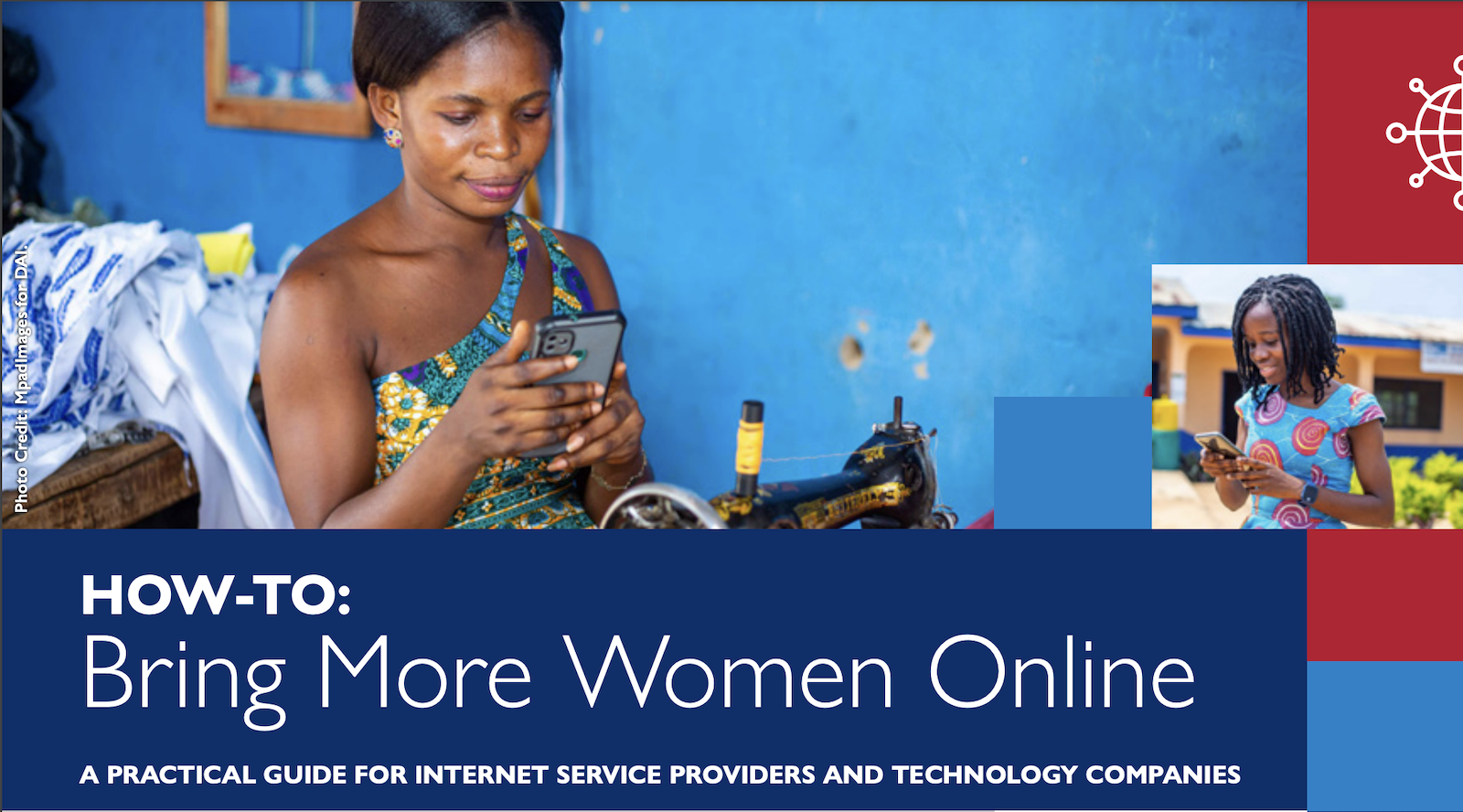
Internet adoption and mobile phone ownership are on the rise globally, yet 2.7 billion people remain unconnected to the Internet. Within this digital divide, there are staggering gaps in access for women and girls in many regions of the world Women are still less likely than men to own a mobile phone and use key services, such as mobile internet and mobile money. Read moreCommunity Media Forum Europe – cmfe.euRue de la Linière 11, Bruxelles BelgiumYou received this email because you signed up on our website or have been in touch with CMFE through recent projects and eventsUnsubscribe
